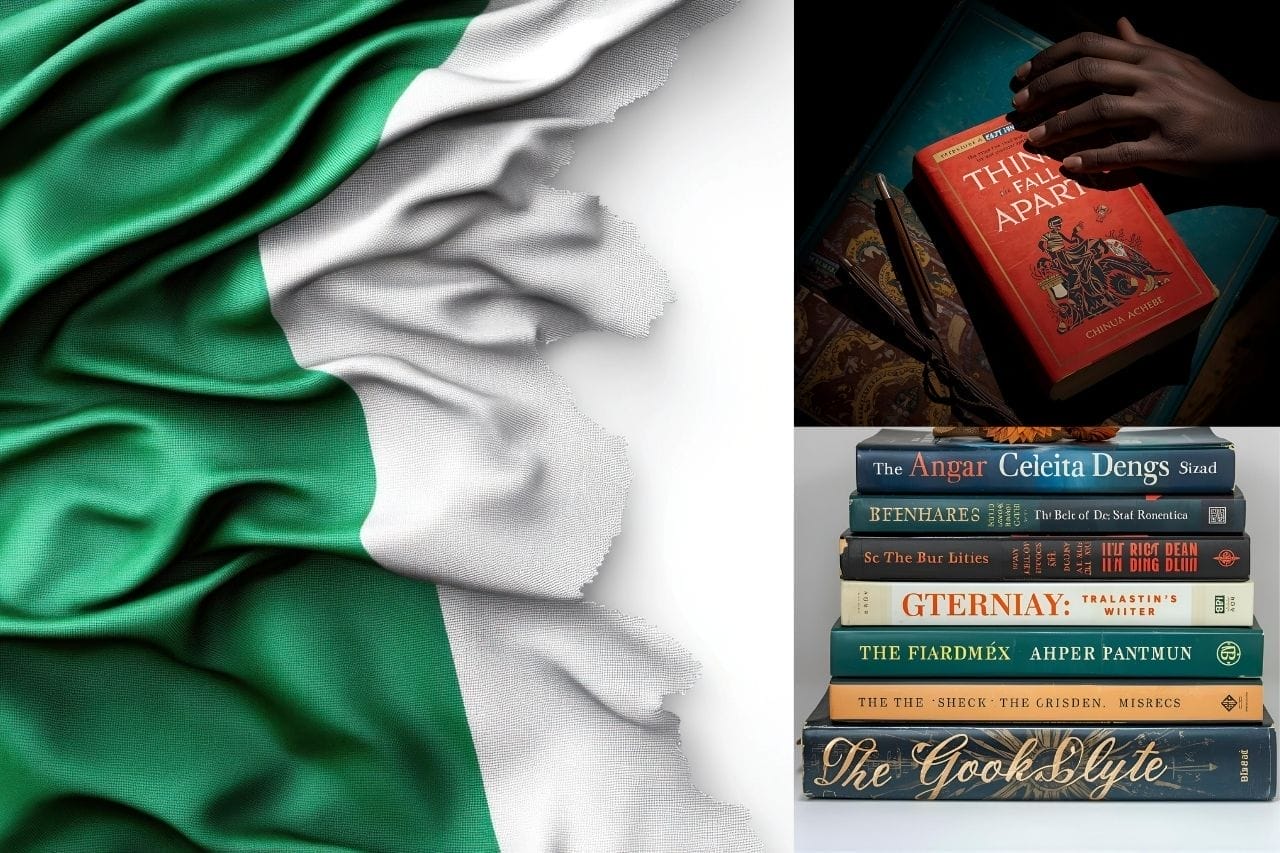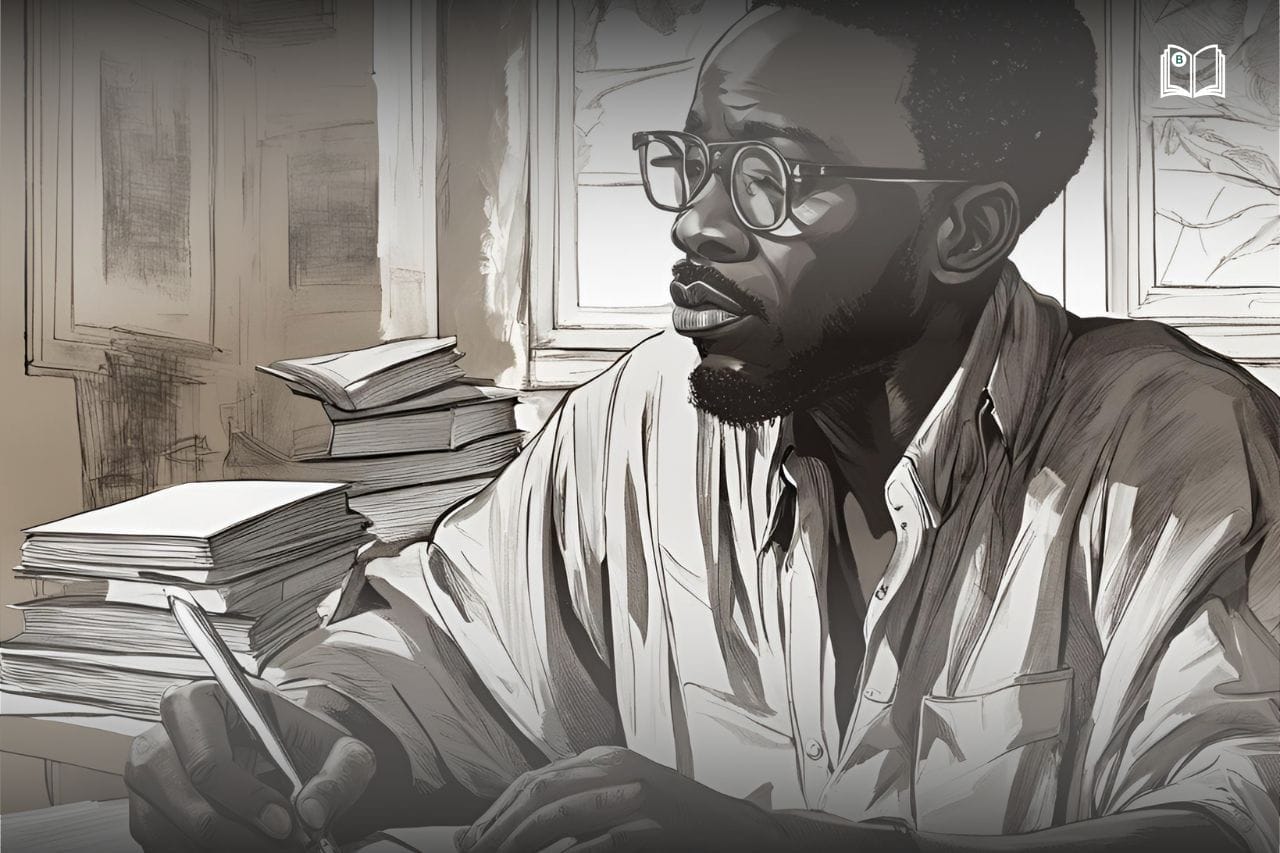Nigeria, often referred to as the “Giant of Africa,” is not only known for its vast population, rich cultural heritage, and natural resources but also for its remarkable literary tradition. Nigerian literature has produced some of the most influential writers in the world, whose works have transcended borders and resonated with readers globally. These writers have not only contributed to the global literary canon but have also played a pivotal role in shaping the narrative of Nigeria, Africa, and the African diaspora.
This article delves into the lives and contributions of some of Nigeria’s most famous writers, exploring how their works have enriched Nigerian literature and influenced the world. From the pioneers who laid the foundation to the contemporary voices pushing boundaries, Nigerian writers have consistently used their craft to address social issues, preserve cultural heritage, and inspire change.
1. Chinua Achebe: The Father of African Literature
Born on November 16, 1930, in Ogidi, Anambra State, Chinua Achebe is often regarded as the father of modern African literature. His seminal work, ‘Things Fall Apart (1958), is one of the most widely read and translated books in African literature.
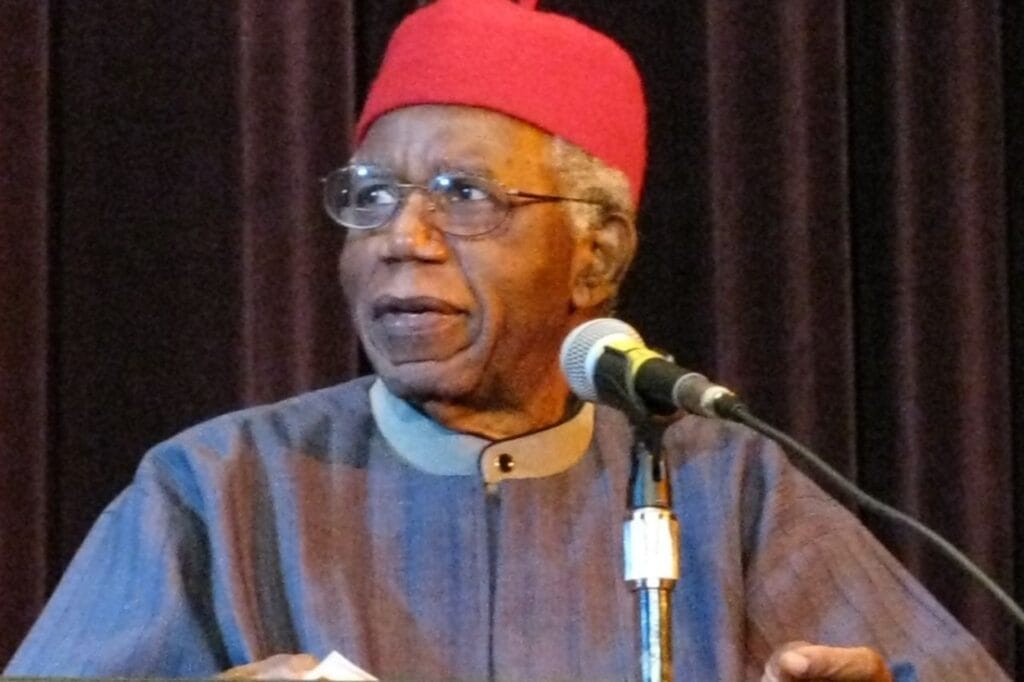
Contributions:
- Pioneering African Narratives: Achebe’s Things Fall Apart was groundbreaking in its portrayal of African life from an African perspective, challenging the stereotypical narratives of colonialism.
- Cultural Preservation: Through his works, Achebe preserved and celebrated Igbo culture, traditions, and oral history.
- Literary Influence: Achebe inspired a generation of African writers to tell their own stories, paving the way for the African literary renaissance.
Notable works:
– Things Fall Apart (1958)
– No Longer at Ease (1960)
– Arrow of God (1964)
– A Man of the People (1966)
Famous Quote: “Until the lions have their own historians, the history of the hunt will always glorify the hunter.”
2. Wole Soyinka: The Literary Activist
Born on July 13, 1934, in Abeokuta, Ogun State, Wole Soyinka is a Nobel laureate in Literature (1986), the first African to receive this honor.
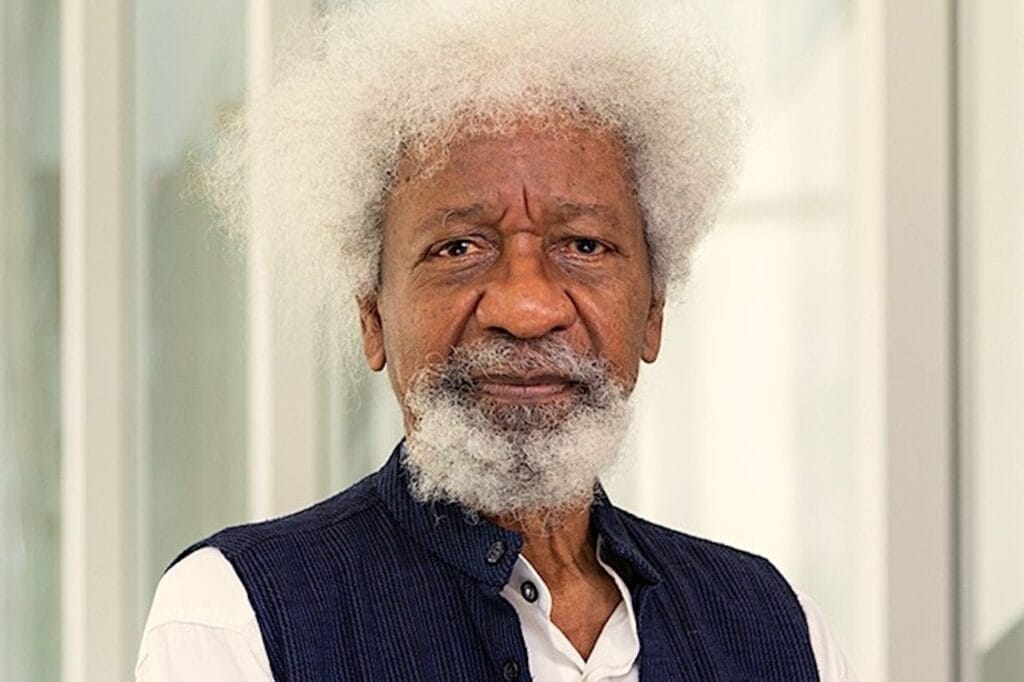
Contributions:
- Political Activism: Soyinka’s works often address political oppression, corruption, and human rights abuses. His activism has made him a prominent voice for justice in Nigeria and beyond.
- Diverse Genres: Soyinka has excelled in various literary genres, including drama, poetry, and essays, showcasing his versatility and depth as a writer.
- Cultural Fusion: His works blend Yoruba mythology with Western literary traditions, creating a unique narrative style that bridges cultures.
Notable works:
– A Dance of the Forests (1960)
– Death and the King’s Horseman (1975)
– The Man Died: Prison Notes (1972)
– Aké: The Years of Childhood (1981)
Famous Quote: “The greatest threat to freedom is the absence of criticism.”
3. Chimamanda Ngozi Adichie: The Voice of a New Generation
Born on September 15, 1977, in Enugu, Enugu State, Chimamanda Ngozi Adichie is one of the most prominent contemporary Nigerian writers.

Contributions:
- Feminism and Gender Equality: Adichie’s works, such as ‘Half of a Yellow Sun’ and ‘Americanah, explore themes of gender, identity, and feminism. Her TED Talk,’ We Should All Be Feminists’, has become a global manifesto for gender equality.
- Global Appeal: Adichie’s ability to address universal themes while maintaining a distinctly Nigerian perspective has earned her international acclaim.
- Literary Awards: She has received numerous awards, including the Orange Prize for Fiction and the National Book Critics Circle Award.
Notable works:
– Purple Hibiscus (2003)
– Half of a Yellow Sun (2006)
– Americanah (2013)
– We Should All Be Feminists (2014)
Famous Quote: “The single story creates stereotypes, and the problem with stereotypes is not that they are untrue, but that they are incomplete.”
4. Buchi Emecheta: The Chronicler of Women’s Lives
Born on July 21, 1944, in Lagos, Buchi Emecheta was a novelist who focused on the experiences of African women, particularly in the context of migration and cultural conflict.
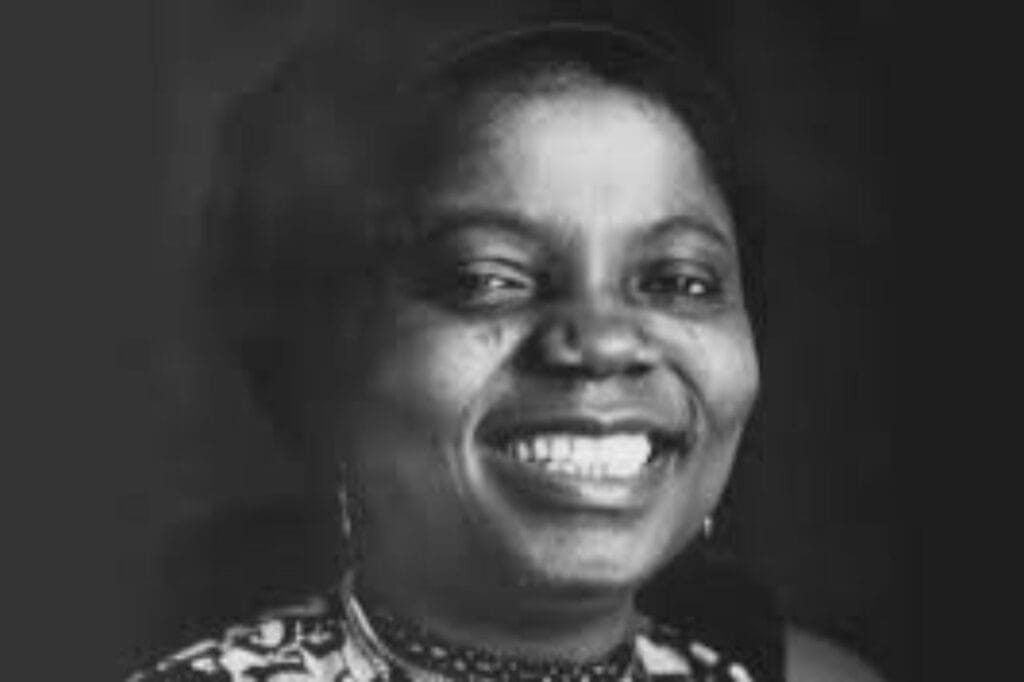
Contributions:
- Feminist Literature: Emecheta’s works, such as’The Joys of Motherhood’ and ‘Second-Class Citizen’, highlight the struggles and resilience of African women in patriarchal societies.
- Migration and Identity: Her novels often explore the challenges faced by African immigrants in Western countries, addressing themes of identity, belonging, and cultural dislocation.
- Literary Legacy: Emecheta’s contributions have paved the way for future generations of African women writers to tell their stories.
Notable works:
– The Joys of Motherhood (1979)
– Second-Class Citizen (1974)
– The Bride Price (1976)
– In the Ditch (1972)
Famous Quote: “I work toward the liberation of women, but I’m not feminist. I’m just a woman.”
5. Ben Okri: The Magical Realist
Born on March 15, 1959, in Minna, Niger State, Ben Okri is a novelist and poet known for his use of magical realism.

Contributions:
- Magical Realism: Okri’s ‘The Famished Road’ blends African folklore with magical realism, creating a unique narrative style that has captivated readers worldwide.
- Social Commentary: His works often address political and social issues, using allegory and symbolism to critique corruption and inequality.
- Literary Awards: Okri has received numerous awards, including the Booker Prize for ‘The Famished Road.’
Notable works:
– The Famished Road (1991)
– Songs of Enchantment (1993)
– Astonishing the Gods (1995)
– The Age of Magic (2014)
Famous Quote: “The most authentic thing about us is our capacity to create, to overcome, to endure, to transform, to love, and to be greater than our suffering.”
6. Flora Nwapa: The Mother of African Women’s Literature
Born on January 13, 1931, in Oguta, Imo State, Flora Nwapa is often regarded as the mother of modern African women’s literature.
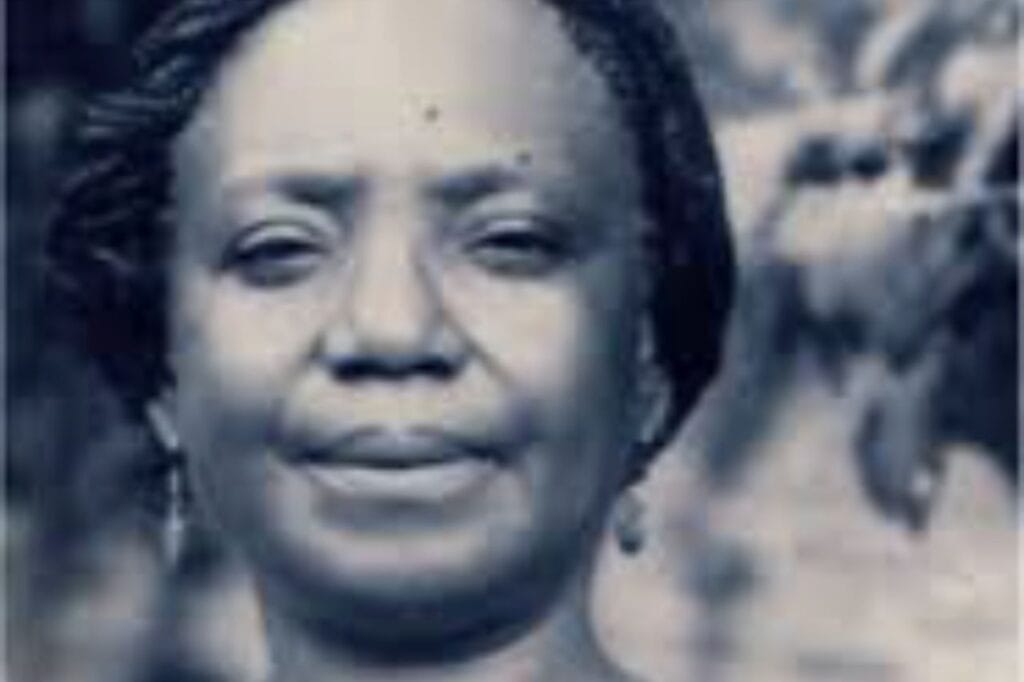
Contributions:
- Pioneering Female Voices: Nwapa’s ‘Efuru’ was one of the first novels by an African woman to gain international recognition, paving the way for future generations of female writers.
- Cultural Representation: Her works focus on the lives and experiences of Igbo women, celebrating their strength and resilience.
- Publishing: Nwapa founded Tana Press, one of the first publishing houses in Nigeria, to promote African literature.
Notable works:
– Efuru (1966)
– Idu (1970)
– One is Enough (1981)
– Women are Different (1986)
Famous Quote: “I write about women because I am a woman, and I know what it means to be a woman in a changing world.”
7. Cyprian Ekwensi: The Master Storyteller
Born on September 26, 1921, in Minna, Niger State, Cyprian Ekwensi was a prolific writer known for his short stories and novels.

Contributions:
- Urban Narratives: Ekwensi’s works, such as ‘Jagua Nana’ and ‘People of the City’, capture the vibrancy and complexity of urban life in Nigeria.
- Popular Literature: His accessible writing style and engaging storytelling made literature more accessible to a broader audience.
- Cultural Reflection: Ekwensi’s works reflect the social and cultural changes in Nigeria during the mid-20th century.
Notable works:
– Jagua Nana (1961)
– People of the City (1954)
– Burning Grass (1962)
– The Passport of Mallam Ilia (1960)
Famous Quote: “The city is a place of dreams, but also of nightmares.”
8. Amos Tutuola: The Folklorist
Born on June 20, 1920, in Abeokuta, Ogun State, Amos Tutuola is best known for his novel ‘The Palm-Wine Drinkard.’
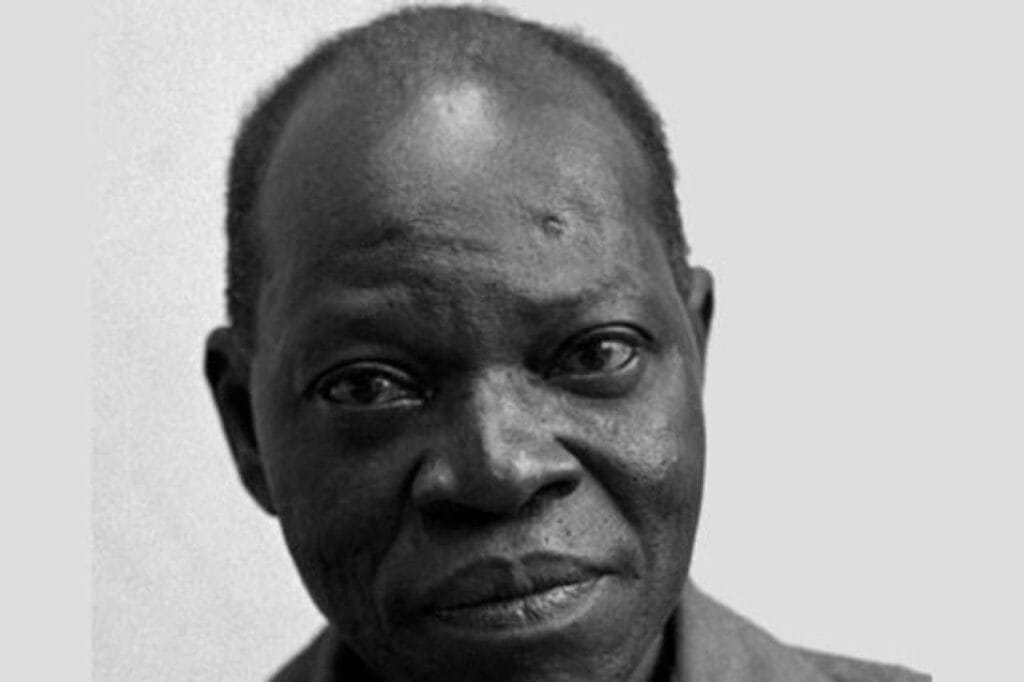
Contributions:
- Folklore and Mythology: Tutuola’s works are deeply rooted in Yoruba folklore, blending traditional stories with imaginative narratives.
- Unique Style: His use of pidgin English and unconventional storytelling techniques created a distinctive literary voice.
- International Recognition: Tutuola’s works gained international acclaim, introducing global audiences to Yoruba mythology.
Notable works:
– The Palm-Wine Drinkard (1952)
– My Life in the Bush of Ghosts (1954)
– Simbi and the Satyr of the Dark Jungle (1955)
– Feather Woman of the Jungle (1962)
Famous Quote: “I write as I dream, and I dream as I live.”
9. Ken Saro-Wiwa: The Environmental Activist
Born on October 10, 1941, in Bori, Rivers State, Ken Saro-Wiwa was a writer, television producer, and environmental activist.
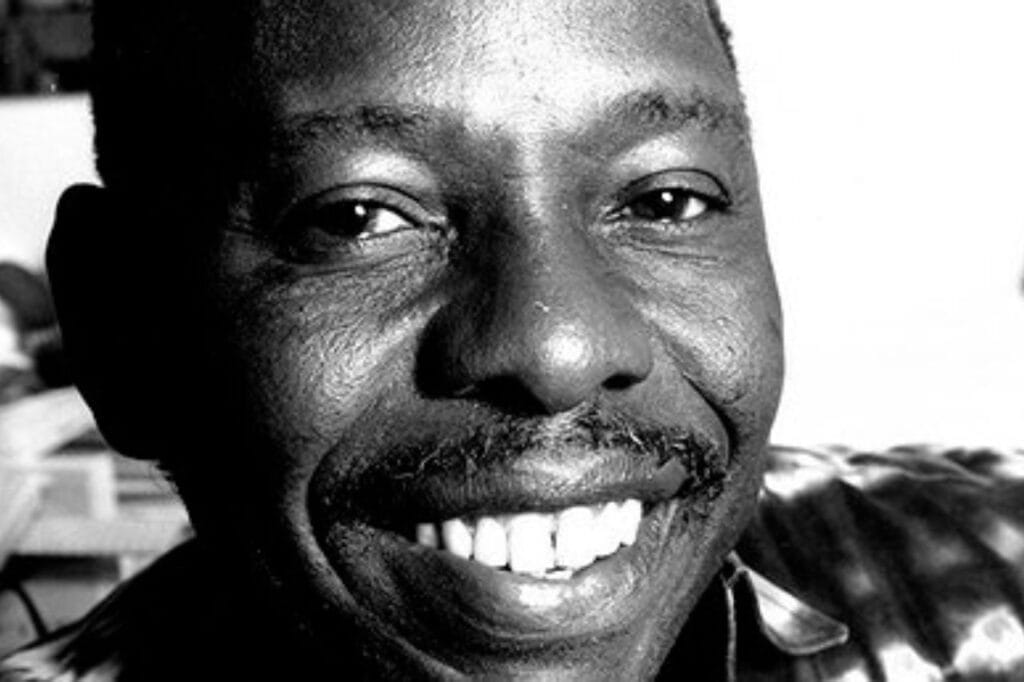
Contributions:
- Environmental Advocacy: Saro-Wiwa’s activism focused on the environmental degradation caused by oil exploration in the Niger Delta.
- Satire and Social Commentary: His works, such as ‘Sozaboy’, use satire to critique political corruption and social injustice.
- Martyrdom: Saro-Wiwa’s execution in 1995 brought international attention to the plight of the Ogoni people and the environmental issues in the Niger Delta.
Notable works:
– Sozaboy (1985)
– A Forest of Flowers (1986)
– On a Darkling Plain (1989)
– Genocide in Nigeria (1992)
Famous Quote: “I accuse the oil companies of practicing genocide against the Ogoni people.”
10. Elechi Amadi: The Chronicler of Rural Life
Born on May 12, 1934, in Aluu, Rivers State, Elechi Amadi was a novelist and playwright known for his depictions of rural life in Nigeria.

Contributions:
- Rural Narratives: Amadi’s works, such as ‘The Concubine’ and ‘The Great Ponds’, focus on the lives and traditions of rural communities.
- Cultural Authenticity: His novels are celebrated for their authentic portrayal of African traditions and values.
- Literary Influence: Amadi’s works have influenced generations of Nigerian writers, particularly those focusing on rural themes.
Notable works:
– The Concubine (1966)
– The Great Ponds (1969)
– The Slave (1978)
– Estrangement (1986)
Famous Quote: “The past is always with us, and it shapes our present and future.”
11. Helon Habila: The Literary Bridge-Builder
Born on November 28, 1967, in Kaltungo, Gombe State, Helon Habila is a contemporary Nigerian writer known for his novels and short stories.
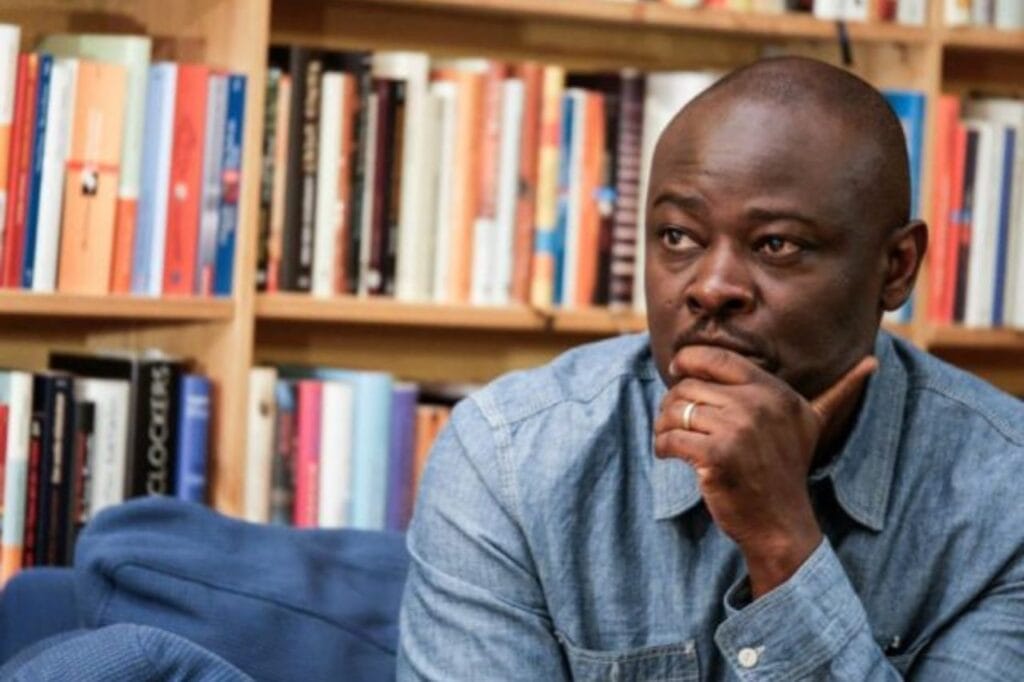
Contributions:
- Migration and Identity: Habila’s works, such as ‘Waiting for an Angel’ and ‘Oil on Water’, explore themes of migration, identity, and the Nigerian experience.
- Literary Awards: Habila has received numerous awards, including the Caine Prize for African Writing and the Commonwealth Writers’ Prize.
- Global Perspective: His works bridge the gap between Nigerian and global literary traditions, addressing universal themes while maintaining a Nigerian perspective.
Notable works:
– Waiting for an Angel (2002)
– Measuring Time (2007)
– Oil on Water (2010)
– The Chibok Girls (2016)
Famous Quote: “Literature is the mirror through which we see ourselves and the world around us.”
Nigerian literature is a vibrant tapestry woven by the pens of its many talented writers. From the pioneering works of Chinua Achebe and Wole Soyinka to the contemporary voices of Chimamanda Ngozi Adichie and Helon Habila, Nigerian writers have consistently used their craft to address social issues, preserve cultural heritage, and inspire change. Their contributions have not only enriched Nigerian literature but have also made a lasting impact on the global literary landscape.
As we celebrate these literary giants, we are reminded of the power of storytelling to connect, inspire, and transform. Nigerian literature continues to evolve, with new voices emerging to tell the stories of a changing nation and world. The legacy of these writers serves as a beacon, guiding future generations to explore, create, and contribute to the ever-expanding world of literature.

